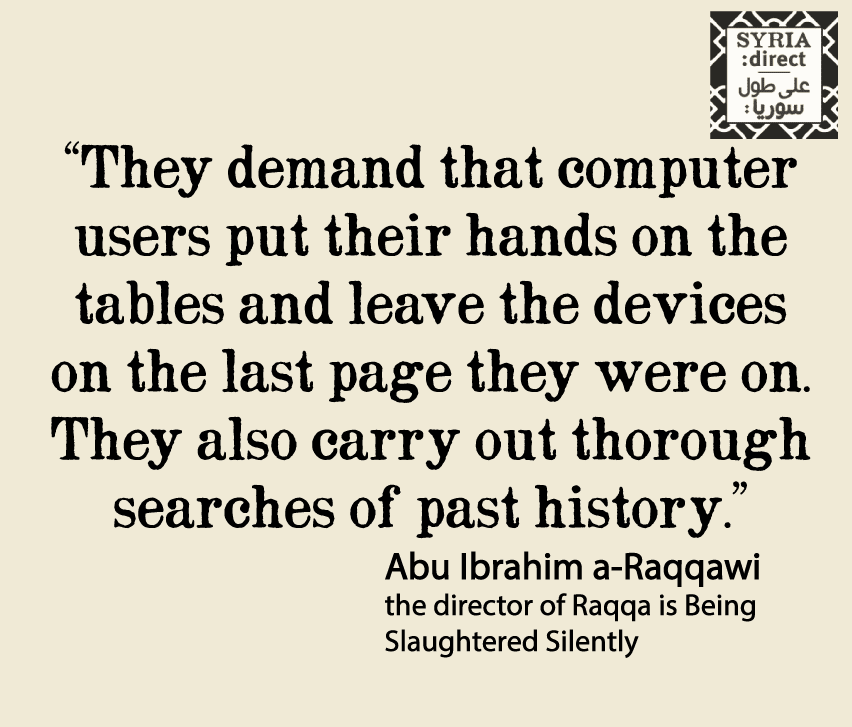Raids, background checks and paranoia: Internet cafes in the Islamic State
The Islamic State (IS) has imposed new stipulations on all […]
27 October 2015
The Islamic State (IS) has imposed new stipulations on all internet cafe owners in A-Raqqa city, mandating a separate section for women and requiring owners be “recommended” by an IS member, among other conditions, reported the Raqqa is Being Slaughtered Silently (RBSS) media campaign on Sunday.
To keep their internet cafes or open a new one, owners must have connections with IS and get friends or relatives affiliated with them to vouch for them, Abu Ibrahim a-Raqqawi, the director of RBSS tells Syria Direct’s Ghalia Mukhalalati. They must also pass a background check.
Since IS cannot directly monitor users internet activity, they have to take these measures to ensure only those affiliated with IS have control over internet access, says a-Raqqawi.
“They are afraid of activists and citizen journalists communicating news about IS and using the internet against them.”
Q: What does “recommendation” from the IS mean here? How do you get a recommendation?
A recommendation here means that one of the members of IS says that so-and-so is good and we can trust them. IS partisans check that a person doesn’t have any red flags in their security files. The café owner then has to contact someone in IS (friends or relatives) and if they recommend him, then he obtains a recommendation.
Q: Do they monitor internet use?
It is satellite internet, not normal internet, therefore IS can’t monitor or spy on users. However, IS members carry out surprise raids on cafes in organized patrols. They demand that computer users put their hands on the tables and leave the devices on the last page they were on. They also carry out thorough searches of past history on all of the devices and computers that they have.
Q: Part of the stipulations was about having a women-only section.
If the owner of an internet cafe obtains a recommendation, then he is ordered to appoint a female director to oversee the women-only section.
Q: What is IS afraid of?
They are afraid of activists and citizen journalists communicating news about IS and using the internet against them. Anyone who is caught spreading information about them or opposing their laws via the internet during raiding patrols is arrested.







